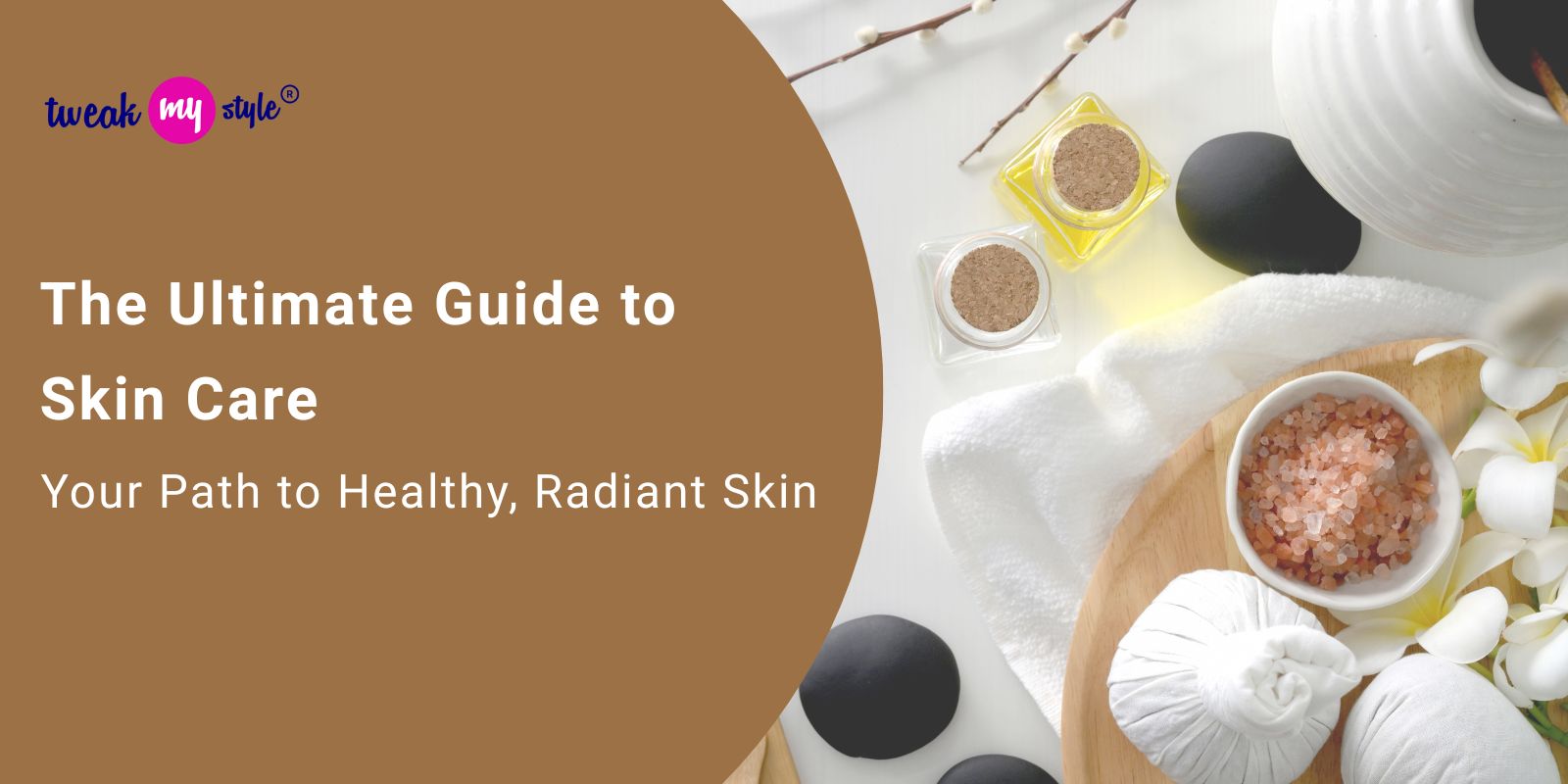- Jun 10, 2025
- Skincare Tips
- 1812
Share this post on:

Understanding Your Skin Type: The First Step to Effective Skin Care
Before diving into products and routines, it’s essential to identify your skin type. Knowing your skin type helps you choose the right products and avoid issues like dryness, irritation, or breakouts.
Normal Skin: Balanced, neither too oily nor dry, with minimal imperfections.
Dry Skin: Feels tight, flaky, and may appear dull due to lack of moisture.
Oily Skin: Characterized by excess sebum production, leading to shine and frequent breakouts.
Combination Skin: Displays oily areas (usually the T-zone: forehead, nose, and chin) alongside dry or normal patches.
Sensitive Skin: Easily irritated, prone to redness, itching, or burning sensations.
To determine your skin type, cleanse your face and wait for an hour without applying any products. Observe how your skin feels and looks. If it feels tight or flaky, it’s likely dry. If it looks shiny and feels greasy, it’s oily. If both oily and dry areas are present, you have combination skin. If your skin reacts easily or feels uncomfortable, it’s sensitive.
Building Your Skincare Routine: The Essential Steps
A simple, consistent skincare routine is the backbone of healthy skin. While products may vary based on your skin type and concerns, every effective routine includes cleansing, moisturizing, and sun protection.
Step 1: Cleansing – Clean Skin, Clear Canvas
Cleansing removes dirt, oil, makeup, and environmental pollutants that accumulate on your skin daily. A gentle cleanser suited to your skin type is vital:
Fordry skin, use hydrating, creamy cleansers that don’t strip natural oils.
Foroily skin, gel-based or foaming cleansers help control excess sebum.
Forsensitive skin, opt for fragrance-free, mild cleansers to avoid irritation.
Cleanse your face twice daily—morning and night—with lukewarm water to maintain freshness without drying out your skin.
Exfoliation removes dead skin cells, promoting cell turnover and revealing brighter, smoother skin. However, over-exfoliating can damage the skin barrier, so limit exfoliation to once or twice a week.
Chemical exfoliants like alpha hydroxy acids (AHAs) and beta hydroxy acids (BHAs) are gentle and effective.
Enzyme-based exfoliants derived from fruits can be good for sensitive skin.
Avoid harsh physical scrubs that can cause micro-tears and irritation.
Toners help restore your skin’s natural pH balance after cleansing and prepare it for better absorption of serums and moisturizers. Choose alcohol-free toners with soothing ingredients such as rose water, aloe vera, or chamomile, especially if you have sensitive skin.
Serums are concentrated formulas designed to address specific skin concerns like dullness, fine lines, pigmentation, or dehydration. Some popular ingredients to look for include:
Vitamin C:Brightens the complexion and fights oxidative stress.
Hyaluronic Acid:Provides intense hydration and plumps the skin.
Niacinamide:Reduces redness, minimizes pores, and strengthens the skin barrier.
Retinol:Stimulates collagen production and smooths fine lines (best introduced gradually).
Apply serums after toning and before moisturizing for maximum benefit.
Moisturizers nourish and protect the skin, maintaining its barrier function and preventing dryness. Select a moisturizer based on your skin type:
Rich creams or balms for dry skin.
Lightweight lotions or gels for oily or combination skin.
Products containing ceramides, glycerin, and antioxidants are beneficial for all skin types.
Apply moisturizer gently using upward strokes to promote circulation.
Sunscreen is the most crucial step in preventing premature aging, sunburn, and skin cancer. Use a broad-spectrum sunscreen with at least SPF 30 every day, regardless of the weather.
Apply sunscreen 15 to 30 minutes before going outdoors.
Reapply every two hours, or more often if swimming or sweating.
Choose formulas that suit your skin type and preferences, such as mattifying sunscreens for oily skin or hydrating ones for dry skin.
Lifestyle Habits That Enhance Skin Health
Your skin’s condition reflects your overall lifestyle. Incorporating healthy habits can dramatically improve your skin’s appearance and resilience.
Stay Hydrated:Drinking enough water keeps your skin plump and helps flush out toxins.
Eat a Balanced Diet:Focus on fruits, vegetables, nuts, and fatty fish rich in antioxidants, vitamins, and omega-3 fatty acids.
Get Quality Sleep:Aim for 7-9 hours of restful sleep to allow your skin to repair and regenerate.
Manage Stress:Chronic stress can trigger skin flare-ups. Practice mindfulness, yoga, or hobbies that relax you.
Avoid Smoking and Limit Alcohol:Both accelerate skin aging and damage the skin’s protective barrier.
Common Skincare Mistakes to Avoid
Even with the best intentions, some habits can undermine your skin’s health:
Skipping Sunscreen:Sun damage is the leading cause of premature aging.
Over-Exfoliating:Too much exfoliation can cause redness, sensitivity, and barrier damage.
Using Too Many Products:Layering excessive products can irritate your skin and cause breakouts.
Neglecting Nighttime Care:The skin repairs itself overnight, so a good night routine is essential.
Ignoring Product Expiry Dates:Expired products may lose effectiveness or cause irritation.
Adapting Your Routine to Your Skin’s Needs
Your skin’s needs may change with seasons, age, and environment. For example:
In winter, you might need richer moisturizers to combat dryness.
In summer, lighter formulations and more frequent sunscreen application are necessary.
As you age, incorporating anti-aging ingredients like retinol and peptides can help maintain firmness and elasticity.
Listen to your skin and adjust your routine accordingly.
The Importance of Patience and Consistency
Skincare is a journey, not a quick fix. Most products take several weeks to show visible results. Consistency in your routine is key to achieving and maintaining healthy skin. Avoid the temptation to frequently switch products or try every new trend. Instead, give your skin time to respond and heal.
Final Thoughts: Embrace Your Unique Skin Care Journey
Every person’s skin is unique, and what works for one may not work for another. The ultimate goal is to nurture your skin with kindness, patience, and knowledge. By understanding your skin type, following a simple yet effective routine, protecting your skin from sun damage, and supporting your skin health through lifestyle choices, you can achieve a radiant, healthy complexion that glows from within. Remember, skincare is an act of self-love. Enjoy the process, celebrate your skin’s progress, and embrace the confidence that comes with healthy, glowing skin. Your path to radiant skin starts today!










